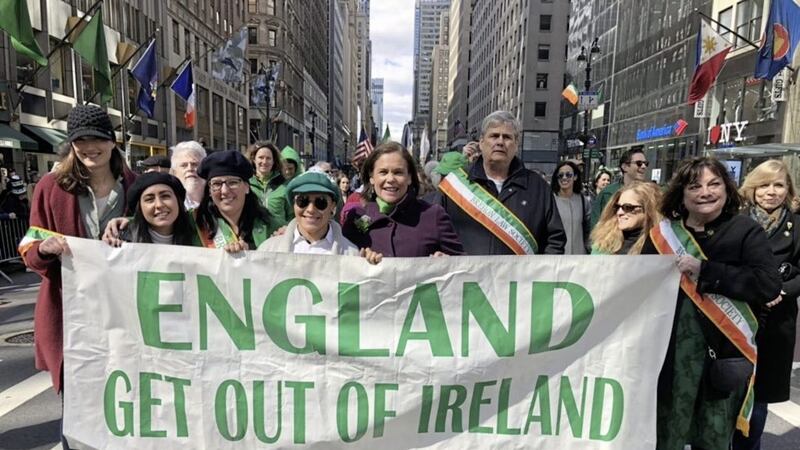Let me share a secret with you, dear reader, but only on condition that nobody else hears about it.
In my youth – whisper it – I was opposed to the policy of internment without trial carried out by the British government in the north of Ireland.
Shocking, I know, but there is worse to come. During a 13-month stint as a proletarian immigrant in New York City I attended meetings of a group which organised protests against internment.
That anti-internment committee was quite broad-based and even included supporters of both wings of the republican movement at the time, “Stickies” and “Chucks” along with independent lefties like myself who favoured a purely-political approach to the Irish Question. A well-attended demonstration took place on Fifth Avenue at the office of British Airways which, at that time, was owned by the British government. My recollection is that the United Kingdom Consulate-General was on an upper floor of a skyscraper whereas the airline office was at ground level, making it a more suitable focus-point.
At the risk of sounding vain, I think our activities helped to bring an end to the internment policy. London has always been more sensitive to public opinion in the US than in the offshore island out there in the Irish Sea.
The protest experience was highly-educational and gave me a certain understanding of Irish republicanism that proved useful afterwards when I became a journalist and covered the peace process.
It also gave me an insight into the Irish-American outlook and mentality, at least on the part of those who still hold the banner aloft for a United Ireland. Some of those banner-holders were in evidence in the recent St Patrick’s Day parade in the Big Apple, with Sinn Féin leader Mary Lou McDonald in their midst and looking happier than I’ve seen her for some time.
The wording on the banner, “England get out of Ireland”, opened her up to attack on this side of the Atlantic, with the sharpest onslaught coming from Tánaiste and Minister for Foreign Affairs in the Dublin government, Simon Coveney, who tweeted: “This is NOT leadership - it’s offensive, divisive and an embarrassment - grow up, this is NOT Ireland in 2019! We are better than this!”
The Fine Gael politician was born three years later than Mary Lou but it still didn’t stop him telling her to grow up. He could be termed a pioneer in the use of social media to attack opponents: on September 14, 2010, when Coveney was in opposition, a tweet issued through his account suggested in very direct terms that, in a radio interview that morning, then-Taoiseach Brian Cowen sounded decidedly under the weather as a result of some enthusiastic socialising. Cowen, who had attended a Fianna Fáil dinner the night before, firmly rejected the claim, explaining that there was a hoarseness in his throat. But a media firestorm ensued which contributed to his departure from the job of Taoiseach six months later.
I would suggest that people shouldn’t take undue offence at the phrase, “England get out of Ireland”. Frankly, a fair proportion of Americans would experience the same difficulty finding Northern Ireland on a map as we Europeans would in locating Iowa or Wyoming. The reference to “England” is to the British government and should not be construed as ethnic targeting.
An editorial in the Irish Daily Mail condemned the SF leader’s “banner stunt”, adding that “Under her leadership, Sinn Féin has made absolutely no advance in the polls.” One assumes this is primarily a reference to the position in the south, since politics in the north is lost in zombie-land. Gerry Adams handed over to her on February 10 2018 and, in the previous ten opinion polls south of the border, the party had scored an average of 16.7 per cent. In ten surveys published between November 22 2018 and March 12 2019, the average Sinn Féin score was 17.6 per cent, so there has been a slight increase of 0.9 per cent. McDonald can at least claim to have held the line and even made a (very) modest advance.
In last October’s presidential election in the south, she and her party got into hot water when their candidate, Liadh Ní Riada, said that, if elected head of state, she would wear a poppy on Armistice Day. That Sinn Féin effort at political ecumenism was seen by some as going too far in placating the British. Now the ‘Shinners’ are getting flak for allegedly promoting Anglophobia. Both allegations are over the top, but if McDonald happens to take over from Simon Coveney as Tánaiste and maybe even Minister for Foreign Affairs, after the next general election or two, it is hard to see her repeating the banner gesture.
Ddebre1@aol.com








